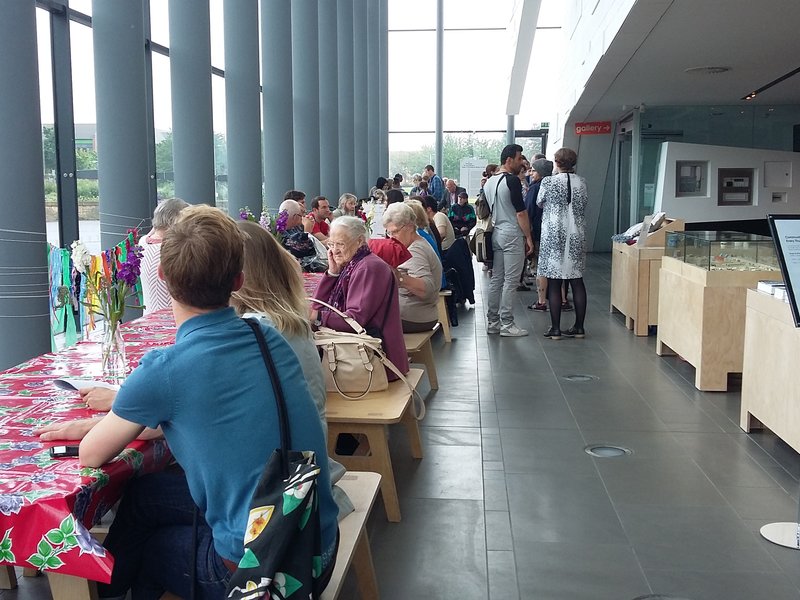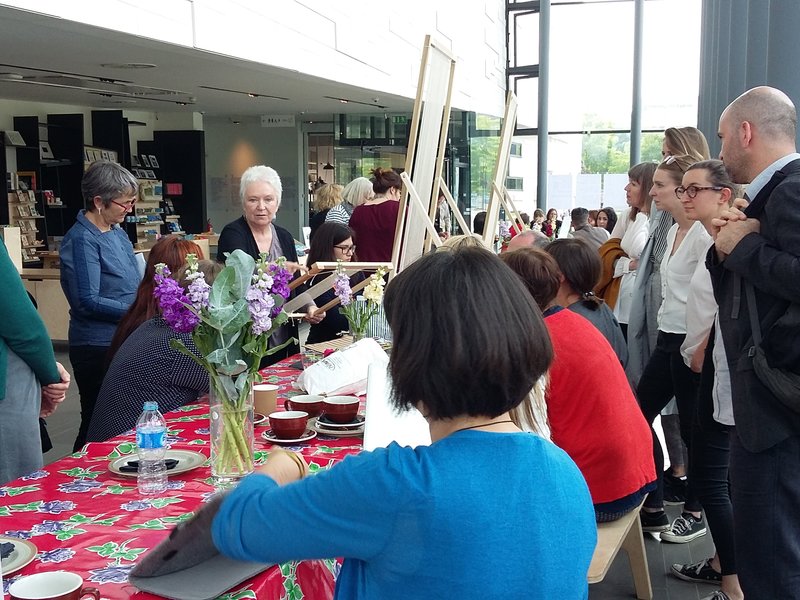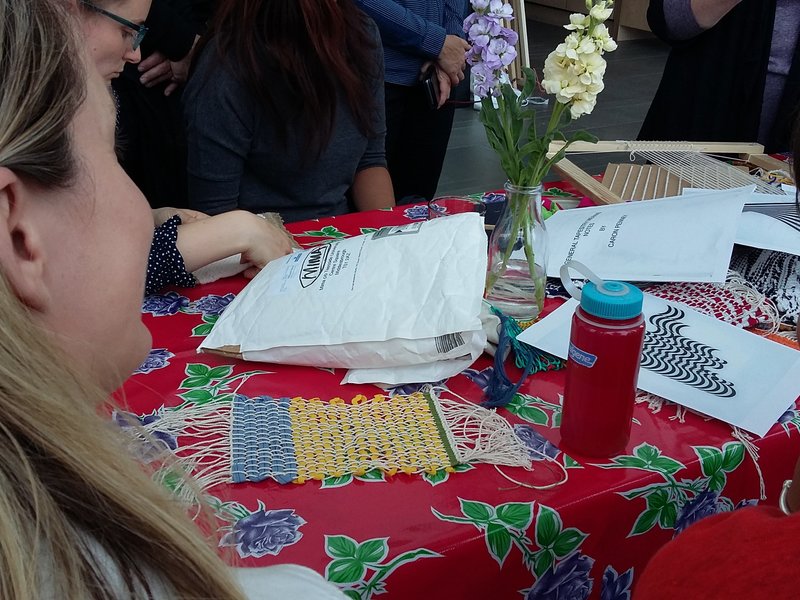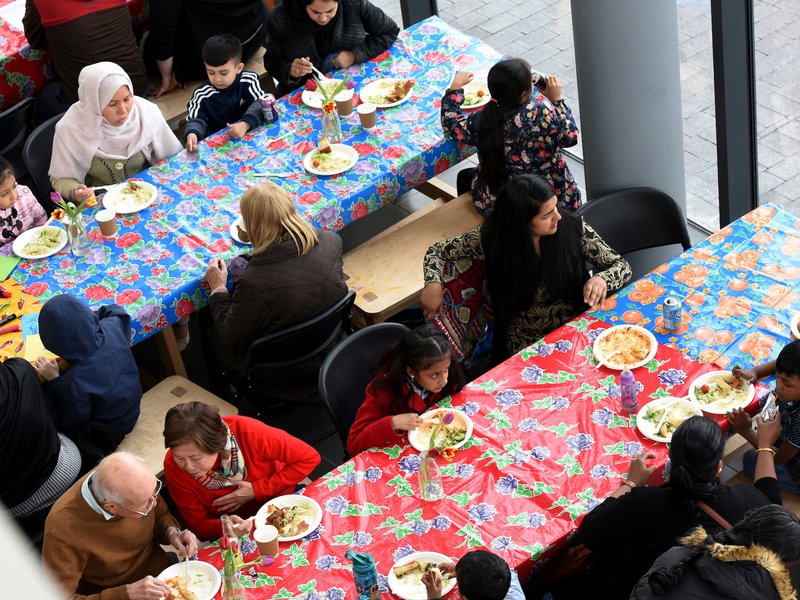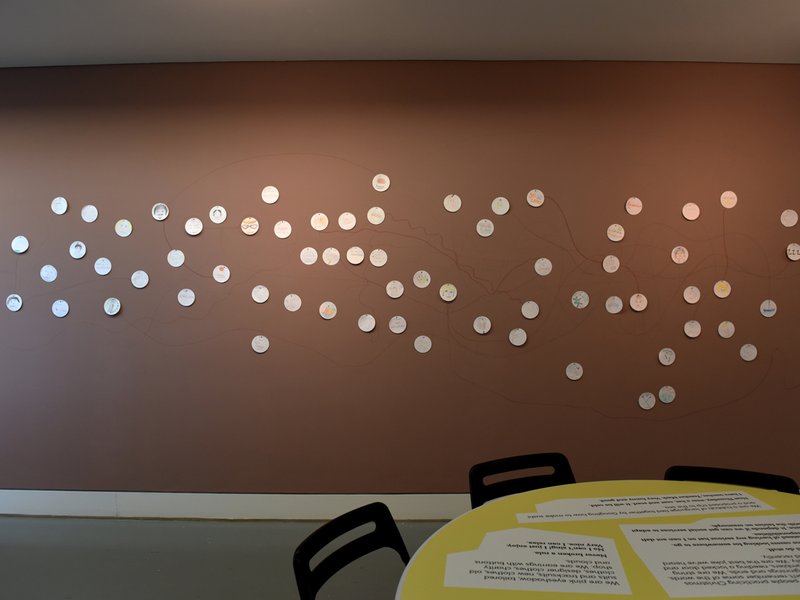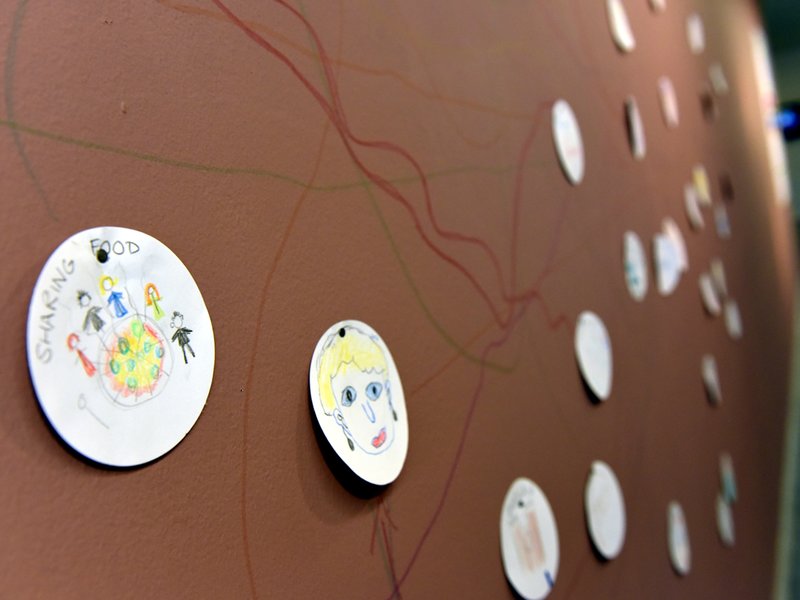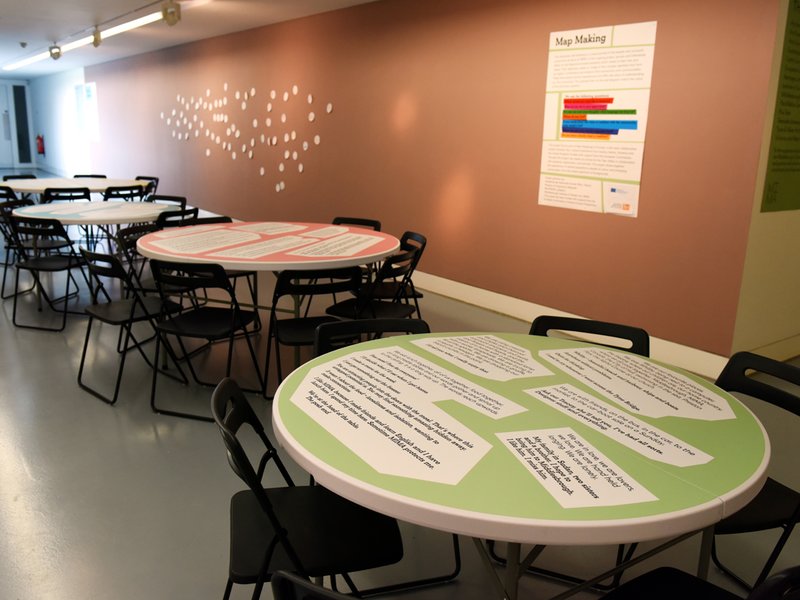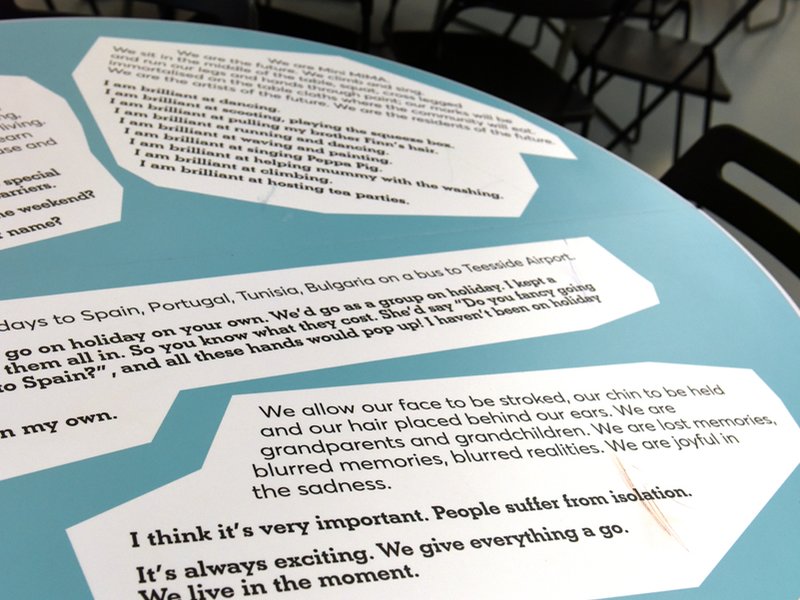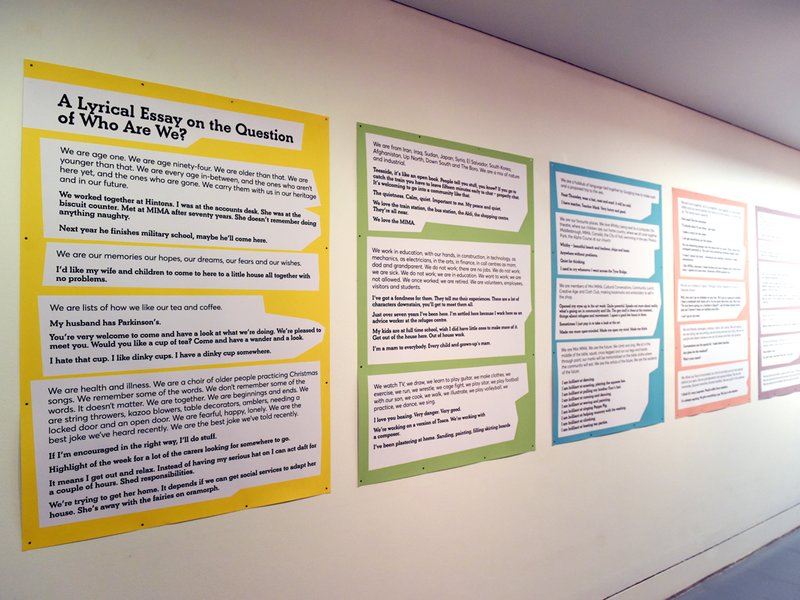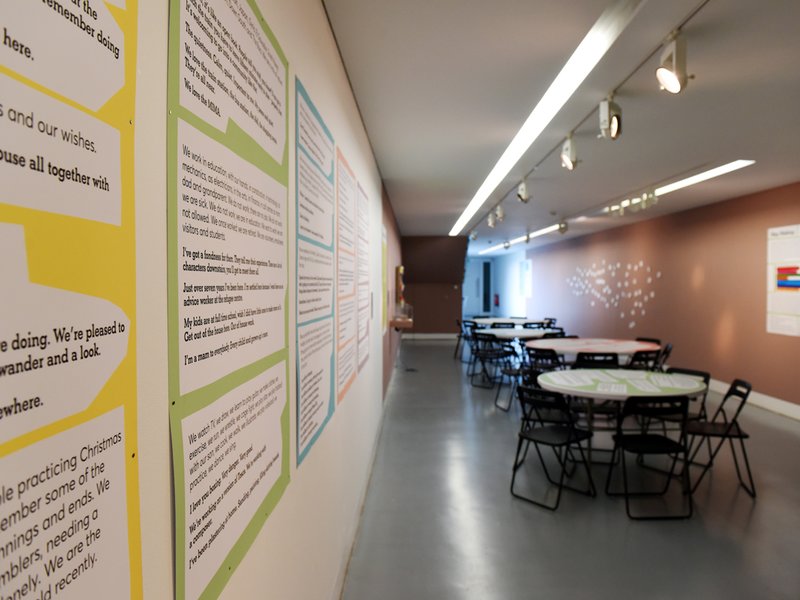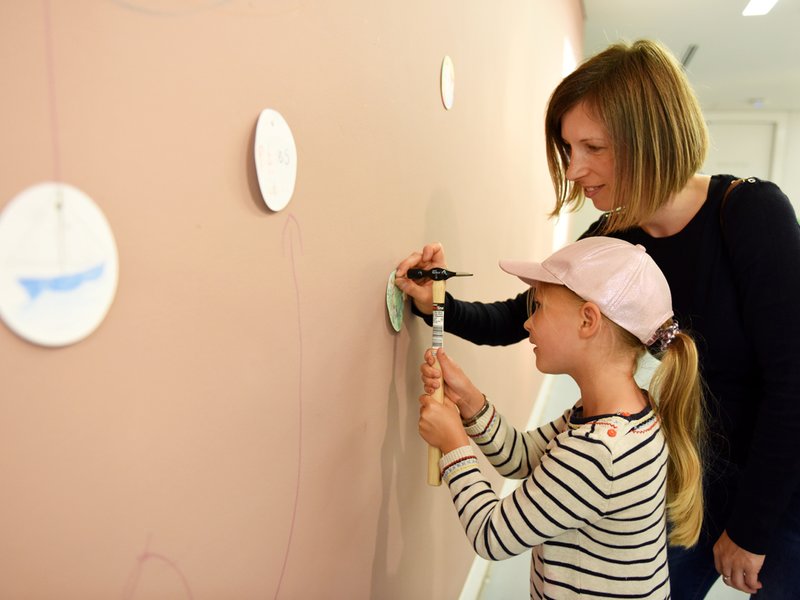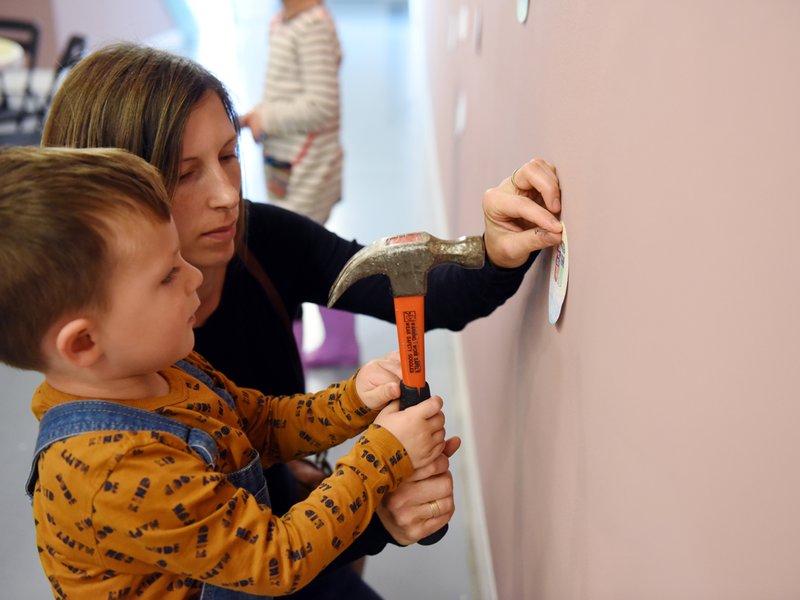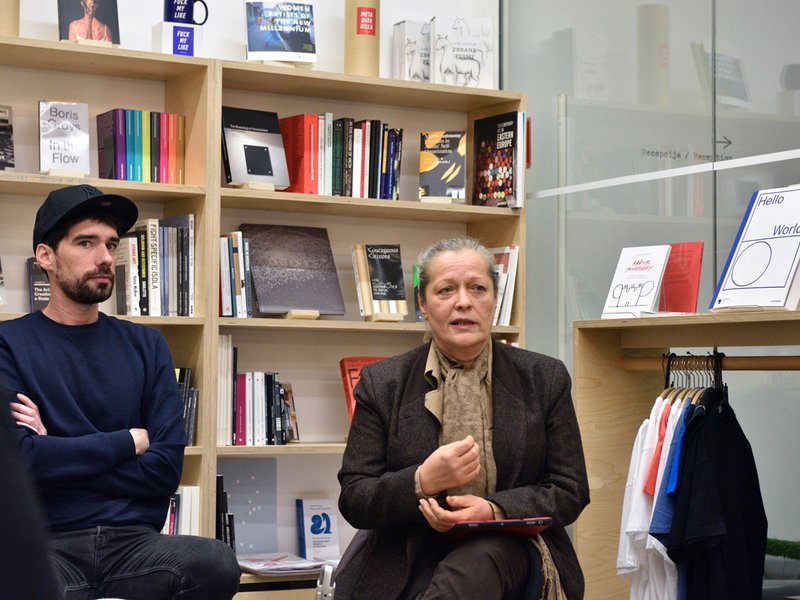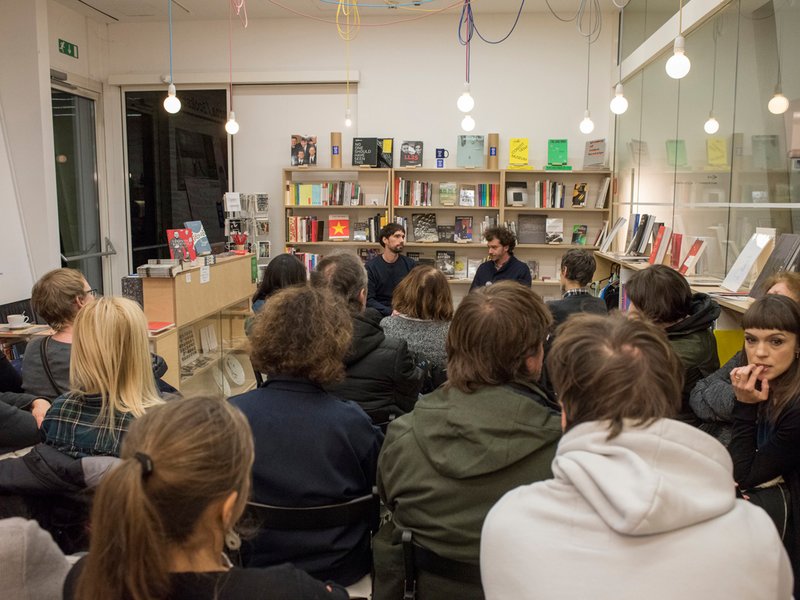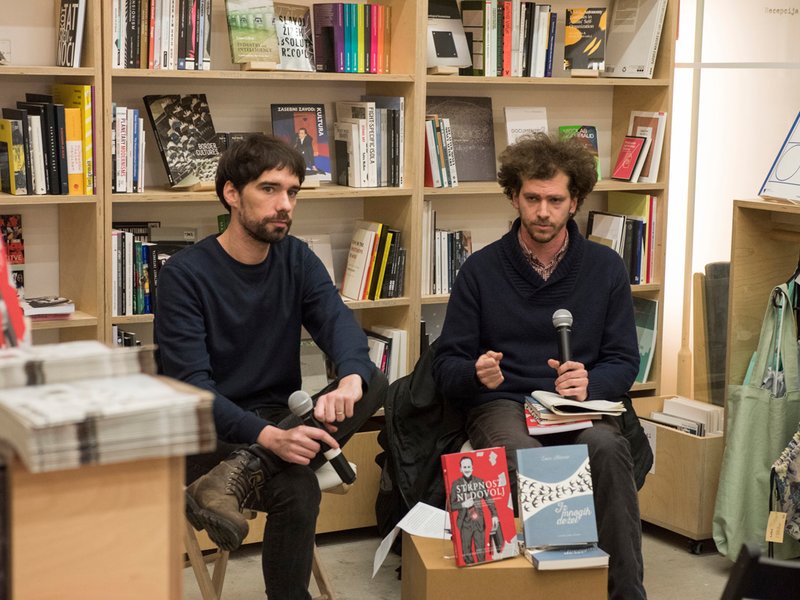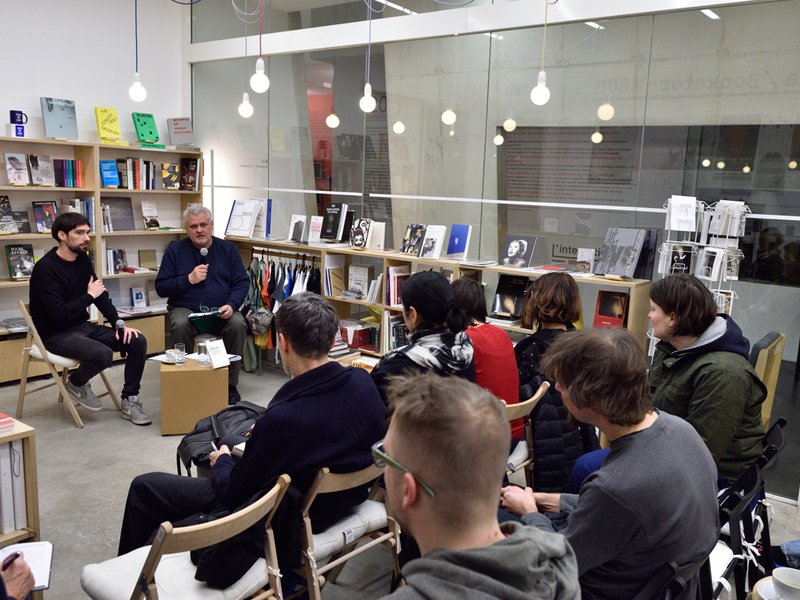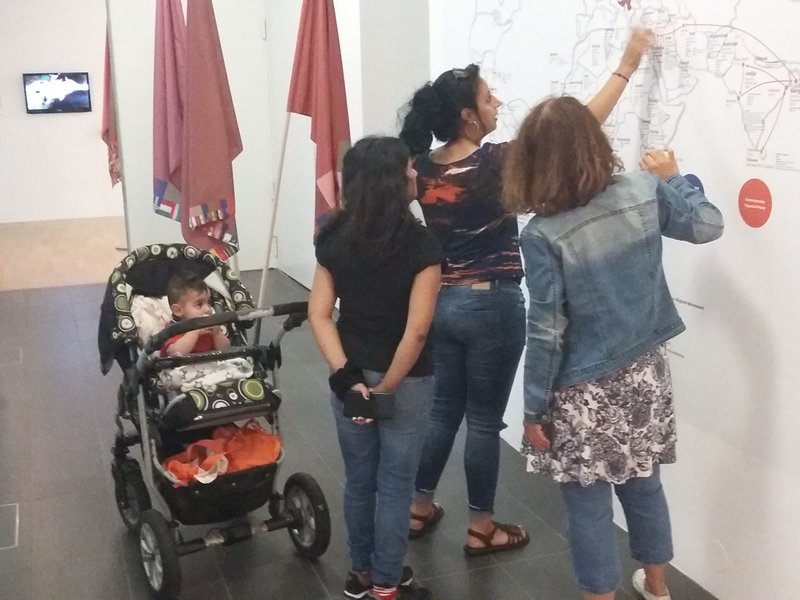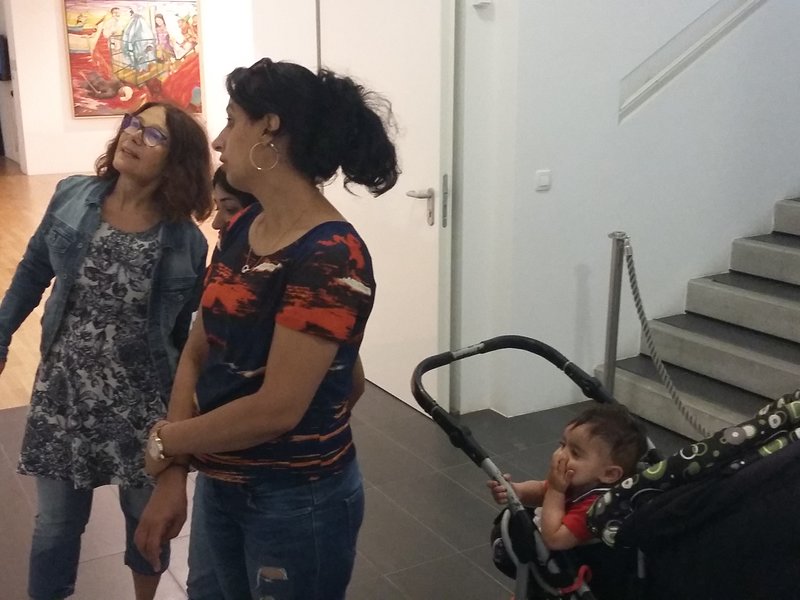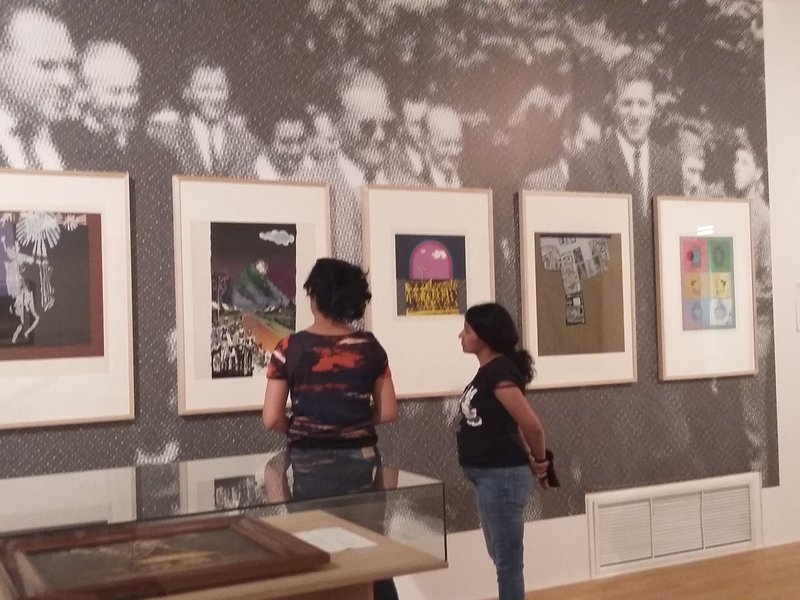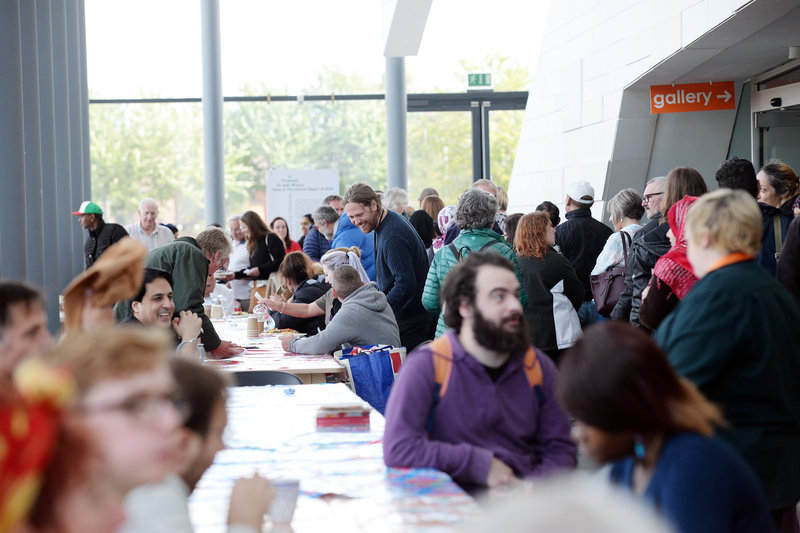
Community lunches, guided tours, transversal projects
Through walks, meals, conversations, and workshops we explore moments of cultural hybridity that reflect the complex contemporary identities of the Tees Valley residents. Working inside and outside of the museum, we host experts in various topics who tell different stories of cultural influence and exchange.
Dual language gallery tours
These gallery tours are led by staff and people who are fluent in the Tees Valley’s non-English languages, including Arabic, Farsi, Panjabi, Tigrinya, and Urdu. These sessions offer insights into different themes and approaches within the exhibition.
Community Day lunch
The Community Day lunch is an opportunity for different people to meet and share ideas over a communal meal. Catering is provided by The Other Perspective, a Community Interest Company that employs people from refugee backgrounds.
Art in Action
July to November 2019, Middlesbrough Institute of Modern Art (MIMA)
MIMA puts art into action. Together with partners, we work through art and creative programmes to contribute to the artistic, cultural, economic, educational, environmental and social life of our area. Art in Action is a space that reflects to voices, stories and experiences of the extraordinary people we work with. These individuals and organisations inspire us, fuel our work and help ensure that MIMA continues to our community.
This Art in Action display, dedicated to MIMA’s New Mappings of Europe programme, featured an interactive wall drawing which is a visual portrait of the organisation’s constituents. In this project, groups and individuals reflect on and respond to broad questions which relate to their lives and values. Their responses create an image of the complex identities that form our region. Contributors are invited to find connections and commonalities. These links reveal common experiences and offer new ways of understanding our rich community. We asked questions around people’s journeys to living in the area, their motivations, interests, dreams and traditions.
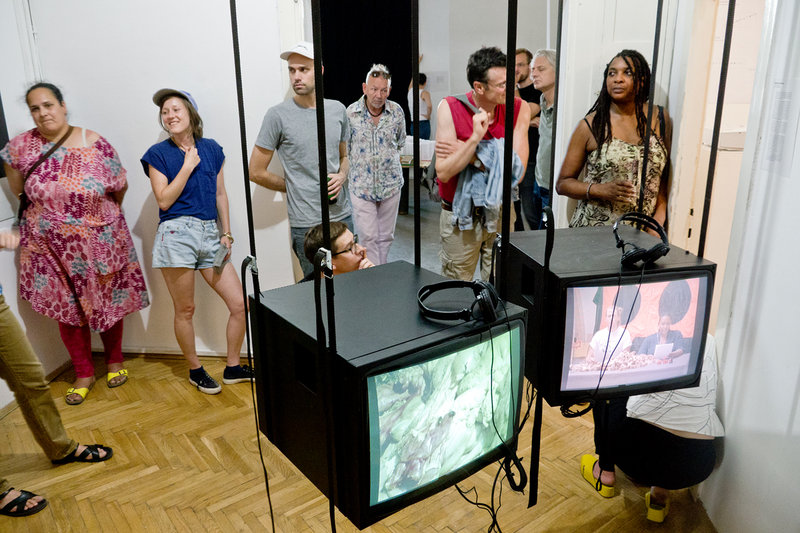
Translocal Scores + Translocal Archives
Community-oriented Guided Tours
In weekly appointments, each of the co-curators from migrant communities plus the curators, resident artist, and experts from our institutional partners (University Vienna and Wien museum) will have a guided tour through the exhibition. The tours will be held bilingual, in the language of the respective co-curator + German, and be promoted within migrant communities.
Translocal Scores exhibition
Friday, 31 May 2019 and Friday, 7 June 2019, at 4 p.m.
Curator's guides and artist talks
Wednesday, 5 June 2019, at 7 p.m.
An exhibition-review with Andreas Spiegl + A performance by Hyeji Nam + Sound by Marie Willmann & Pato Wiesauer
Translocal Archives exhibition
Phraseology and the Migrating Museum
Irene Lucas – Workshop
Sunday, 30 June 2019, 11 a.m. to 2 p.m.
Transcending Fantasy
Rosa Wiesauer – curated video screening
Rosa Wiesauer, Sarah Podbelsek and Mika Maruyama – Talk
Thursday, 4 July 2019, 7 p.m.
Fluchtpunkt Wien – Symbolisations of Loss
Vida Bakondy and Amila Širbegović – Curators' Talk
Friday, 12 July 2019, 7 p.m.
City Walk 1050 Wien
Guided tour by Natalie Deewan and Tomash Schoiswohl
Meeting-point: 5erHaus, Grünwaldgasse 4, 1050 Wien
Saturday, 13 July 2019, at 4 p.m.
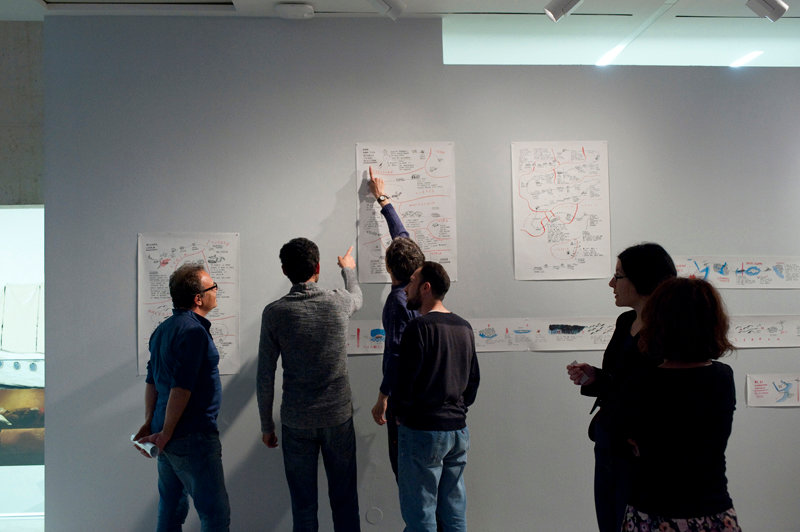
guided tours, lecture series, transversal events
Lecture series
In recent years, Discussions about migrations have been marked by the so-called refugee crisis as the media have dubbed the more numerous than usual border crossings in 2015. The word migration thus conjures up images of endless caravans of people from the Middle East, the militarized responses of the EU states, and social polarization and the rise of hate groups. Migrations have become a synonym for an emergency situation. The point of view that presents the mass migrations of 2015 as an extraordinary natural disaster that states must control by all means deflects from a true understanding of this multilayered process. Mass migrations of people from region to another have a complex history and are inextricably entwined with global economic processes that equally affect the local populations and the migrants.
Phenomena such as the migrations of refuges in 2015 are hard to process without understanding the origins of our borders, what this meant for the population and in what way also the inhabitants of Slovenia are included in the global processes of migration. The “Migrations in Time and Space” series of lectures will focus on the regional conditions in the areas near the borders and try to put the local history of the immigration and emigration of Slovenes in the global context.
+ Kantina is sharing space with the +MSUM Bookstore on the ground floor of the museum since Thursday, 21 December 2017. We have joined forces with a diverse team of people to add a variety of flavors to the existing international orientation of the museum. In addition to serving drinks and snacks from different parts of the world, + Kantina will serve as a new meeting point at Museum of Contemporary Art Metelkova and in the warmest months of the year extend the service to the museums' platform, to catch the sun rays or seek for shades. + Kantina is also a space that provides alternative economies for affirmations of the knowledge of migrants and it aims to build social networks and exchange ideas in the wider area of Metelkova.
Conversations / Guided Tours
Guided tours and conversations were conducted by curators, artists in residence, as well as the migrants who participated in the programme of the exhibition. Translations were provided in the migrants’ native languages (mostly Arabic and Farsi).
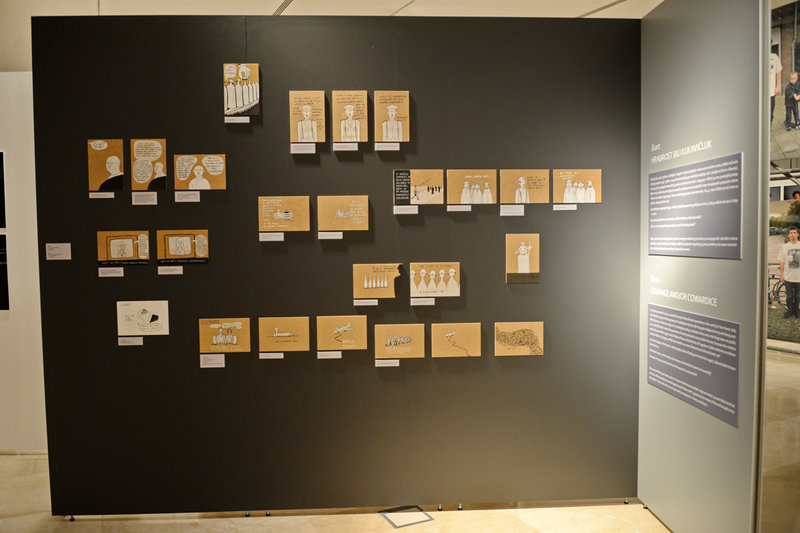
Gender and Visa Regimes + guided tours
Gender and Visa Regimes – Presentation of the Artist Tanja Ostojić
7 December 2019, The Museum of Yugoslavia, Belgrade.
The first accompanying program of "The Nineties: A Glossary of Migrations" exhibition with Maja Korać Sanderson, professor at the University of East London, UK, and the exhibition participant, artist Tanja Ostojić. The program was moderated by the authors of the exhibition, Ana Panić and Simona Ognjanović. On topics of gender and visa regimes, each participant spoke from the perspective of their own scientific or artistic work.
Professor Maja Korać Sanderson talked about the coloniality of the glossary of migrations in 1990s and today, which constructs territorial boundaries as gedered, racial and class barriers of the so-called developed, democratic western world; and about the importance of understanding/perceiving refugees as social and political actors with particular historical, cultural, social and gender identities. The motive for Tanja Ostojić’ presentation is the project “Looking for a Husband with an EU Passport”, which is part of the exhibition. The project began in August 2000 when Ostojić published an advertisement with the above title and exchanged more than 500 letters and e-mails with a number of interested parties around the world. After six months of correspondence with Clemens G. from Germany, she organized the first meeting with him in the form of a public performance on the lawn in front of the Museum of Contemporary Art in Belgrade; a month later they were married. After the expiry of a three-year residence permission, instead of gaining a permanent residence permission, she was granted only a two-year residence permit. After that, Clemens G. and Ostojić divorced, and during the opening of the exhibition “Integration Project Office” at the Gallery 35 in Berlin, in 2005, she organized a “Divorce Party”.
About the participants:
Tanja Ostojić is an interdisciplinary artist, researcher and educator, who lives in Berlin. She uses a variety of media in her artistic practice, examining feminist issues, power relations, racism, economics, biopolitics… She acts in her performances, mainly from the position of female migrants. Works by Tanja Ostojić have been displayed in a number of solo and group exhibitions and festivals around the world, since 1994, and have also been parts of many museum collections.
Professor Maja Korać Sanderson is co-director of the postgraduate programme in Refugee Studies, and co-director of the Center for Social Justice and Change, of the Department of Social Sciences and Social Work, at the University of East London, UK.
Guided tour by Žole (Škart)
28 December 2019, 1 p.m., The Museum of Yugoslavia, Belgrade
Guided tour of "The Nineties: A Glossary of Migrations" exhibition at the Museum of 25th May building. Curators of the exhibition, Simona Ognjanović and Ana Panić introduced the concept of the exhibition. At this occasion, the artist Đorđe Balmazović - Žole from the "Škart" collective joined them to introduce his own artwork.
Žole contributed terms "Courage and/or Cowardice" for The Glossary of Migrations asking himself: "What did it mean, in the nineties, to be brave, and what did it mean to be cowardly? To head-on to a war one did not know the reason for, or to escape it? Now, almost thirty years later, when it is known that the war resulted in approximately 140,000 killed and that around 4 million people became refugees (most of whom left Yugoslavia), the extent of the evil brought on by nationalism is clear and why it is so important to recognize it in time, and stop it."
"The Nineties: A Glossary of Migrations" exhibition presents works by over 30 contemporary artists and art collectives who deal with the problem of migration of population from an to Serbia in the course of one decade. More information on the museum's home page.
Guests of the guided tour received a ticket for all the museum's venues.
